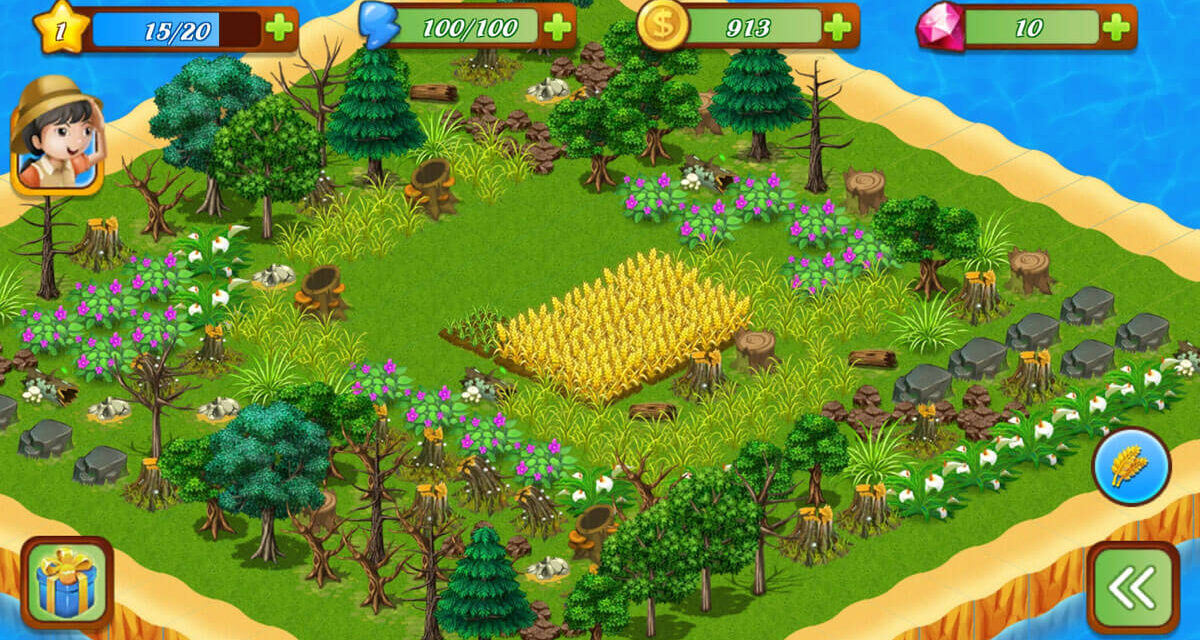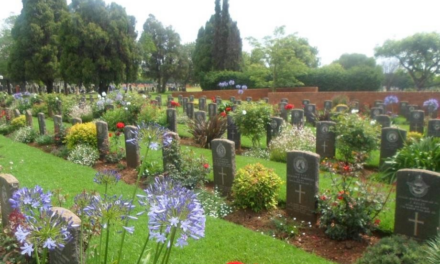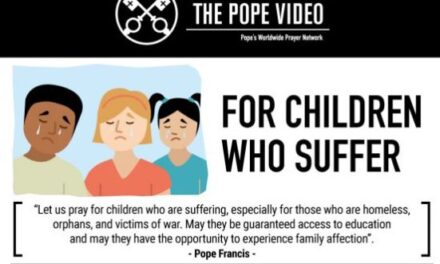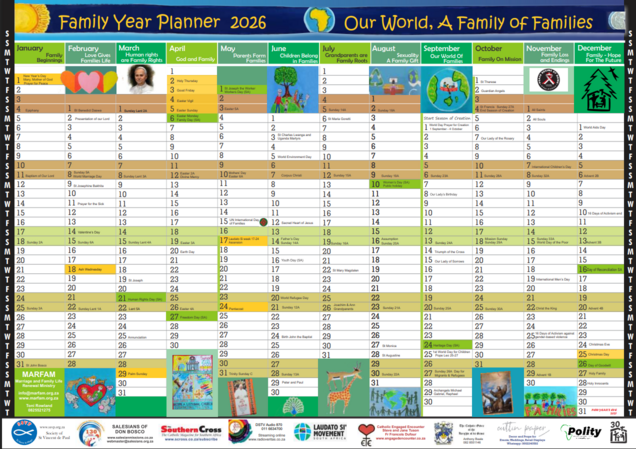September 3. ECO-FRIENDLY FAMILIES. (From BECOMING ECO-FRIENDLY FAMILIES)
What is this strange ideal? Terms such as environment, ecology, climate change or biodiversity, are all terms that address the same urgent need not only to understand the impact of climate change, but also to respond to it in our daily lives. Its effects such as extreme weather conditions are being experienced throughout the world, where more rain or less rain, hurricanes, typhoons, floods and landslides affect everyone and everything causing deaths and much destruction and losses, also of livelihoods. These points were noted by the 2024 UN International Year of the Family 30th anniversary theme of “Families and Climate Change.”
Family is a reality and a form of family living is the most common way of life. Becoming an eco-friendly family is an ideal to work towards, a vision and also a journey in faith, accepting the reality and dealing with issues as they arise. It has many facets and differences. What are the key points in being and becoming eco-friendly families – a vision and a goal :
- Our approach is as families, as units.
- We recognize individuals; gender, age, relationships within a family.
- We recognize differences and needs: abilities and interests – from sport to technology, science or nature in men, women, children, young to old
- We act as “one for all and all for one.”
- We love and cherish life
- We aim to motivate for an environmental awareness – often in competition with other interests e.g. sport.
- We aim to share eco-friendly values, “refuse, reduce, reuse, recycle, repair. “
- We promote saving water, energy – electricity, electronics, travel.
- We aim for healthy eating – diet with less meat and more plant-based.
- We encourage joint activities and causes – “save the rhino, protect unborn life, clean-up campaign.
- We aim at areas of shared faith and spirituality, recognizing God as creator as the basis of all life. Reflect, share, pray to develop this spirituality.
- We put our money where our mouth us. Ecological awareness and action can require money and investment but its ultimate outcomes make any expense worthwhile.
- We have respect for the environment, appreciate beauty. Arbor week is from 28 August to 5 September.
- What starts at home is taken out into the world, school, work, sport etc.
All family members can engage with the environment in different ways, from feeding tiny infants in the most healthy ways, ideally through breast-feeding, to toddlers not being fed on junk food and sweet drinks. Learners at school are especially encouraged to be health conscious, when it comes to smoking, drinking, food and sexual behaviour. It is not for themselves alone but for the world around them, i.e. the school, sportsfield and shopping mall.
An ecological sensitivity started in homes can be put into practice in creative and innovative ways by young people’s technological ability for design and inventions when it comes to architecture, building, scientific research into energy and water management, nature conservation etc. The elderly are often still active in their families in water and energy saving and clean-ups, while as they become weak and feeble they may need special care and healthy diet. Appreciating beauty in nature and architecture is for everyone.
Pope Francis often writes, “Everything is connected.” An ecological sensitivity needs to be borne in mind across the board and by everyone, by town planners, economists and politicians, in planning and decision-making and should not be restricted to those directly involved.
The concept of a Circular Economy should be strengthened based on recycling, reuse and reduction of waste as is done by nature. The World Economic Forum reported on the millions, of disposable nappies dumped or incinerated every day, which is very unhealthy for the earth. Disposable nappies are used for infants but also by elderly and in hospitals. An innovative response was making reusable nappies using pineapple fibre instead of plastic. Other natural and biodegradable plant products such as wood, bark and banana leaves are all good alternatives to plastic in products, even fashion fabrics. They do not emit carbon and in some cases even reduce carbon in the atmosphere. It’s all a question of mindset.
Reflect, share, act. Scripture: “We have the mind of Christ”. Pope Francis: Authentic development includes efforts to bring about improvements in the quality of human life which involves settings in which people live. These influence the way we think, feel and act in our rooms, homes, workplaces and neighbourhoods, as we use the environment as a way to express our identity. If it is chaotic, filled with noise and ugliness it makes it more difficult to keep calm, relaxed and happy. LS147. Many problems are closely linked to a throwaway culture which affects the excluded just as it quickly reduces things to rubbish. Most of the paper we produce is thrown away. It is hard for us to accept that the way natural ecosystems work is exemplary: plants synthesize nutrients which feed herbivores, those in turn become food for carnivores, which produce significant quantities of organic waste which give rise to new generations of plants. Our industrial system at the end of its cycle of production and consumption has not developed the capacity to absorb and reuse waste and by products. We have not yet managed to adopt a circular model of production. LS 22
Eco-tip and Prayer. Loving God, make us more and more conscious that our homes are good places to start to become eco- and family- friendly.







Recent Comments